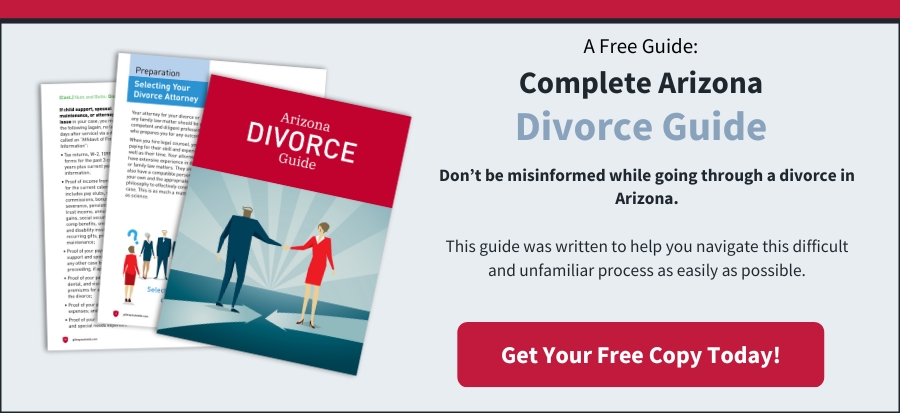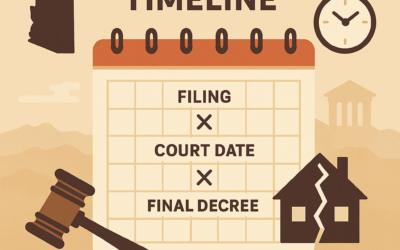This guide was written to help you and others like you navigate the difficult and unfamiliar process of Divorce in Arizona. Download today.
Alternative Dispute Resolution and Divorce Mediation
In general, it’s always better to work to resolve contested issues outside of a formal courtroom setting. Divorce mediation can trim the Arizona divorce process timeline, reducing personal stress and financial costs.
Mediation Speeds up the Arizona Divorce Process Timeline
After both parties have completed their disclosures, you should hire an informed facilitator—such as a judge or an experienced family law attorney—to sit down with you both and try to help you settle any disagreements as smoothly as possible. A successful divorce mediation effectively changes a contested divorce to an uncontested one.
Arizona divorce mediation services can be much less expensive than the alternative—a series of hearings which are likely to end in a formal trial. And mediation is much more flexible than the often impersonal solutions a trial court could impose upon you.
In No Fault Divorce situations, where there’s little rancor or disagreement, it only makes sense to utilize Arizona divorce mediation services. In other cases, there’s still much that can be achieved, and the promise of a shorter, cheaper Arizona divorce process timeline is a good incentive to seek mediation first.

Contact us today
The attorneys at Gillespie Shields and Taylor and Houk, are skilled in family, employment, civil, criminal, probate, immigration, and appellate law. They are a fixture of the community and serve the Phoenix and Mesa areas. Schedule your consultation today.
Disclaimer
The information contained on this site is not, nor is it intended to be, legal advice. You should consult an attorney for legal advice concerning your individual situation. We welcome you to contact us via phone, electronic mail, or through this website. However, contacting us does not create an attorney-client relationship. Please do not send us confidential information until such time as an attorney-client relationship is established.
Continue Reading
Arizona Divorce Laws
Arizona divorce laws explained in detail: residency, property division, child custody, support, alimony, and more. Learn how Arizona divorce laws affect your case.
Arizona Divorce Timeline: How Long Does It Take from Start to Finish?
Arizona Divorce Timeline: How Long Does It Take from Start to Finish? Introduction: Why Divorce Timelines Matter One of the most common and pressing questions individuals ask when facing the end of a marriage is: “How long will my divorce take in Arizona?” The answer...
Legal Options for Addressing DCSS Issues in Arizona: Rights, Remedies, and Representation
Legal Options for Addressing DCSS Issues in Arizona: Rights, Remedies, and Representation Introduction The Arizona Division of Child Support Services (DCSS) plays a critical role in enforcing child support orders and ensuring that financial responsibilities toward...
Family Law Attorney in Phoenix & Mesa
Founded in 1985, GillespieShields is the top family law firm in Phoenix & Mesa. We’re ready to put our years of experience to work to resolve your legal issue.




